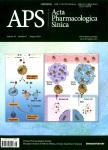Protective effects of L-arginine on pulmonary oxidative stress and antioxidant defenses during exhaustive exercise in rats
Protective effects of L-arginine on pulmonary oxidative stress and antioxidant defenses during exhaustive exercise in rats作者机构:Department of Nutrition and Food Sciences Fu-Jen Catholic University Taipei China
出 版 物:《Acta Pharmacologica Sinica》 (中国药理学报(英文版))
年 卷 期:2005年第26卷第8期
页 面:992-999页
核心收录:
学科分类:1002[医学-临床医学] 100216[医学-运动医学] 10[医学]
基 金:grants from the National Science Council of Taiwan (№ NSC 92-2413-H-030-009)
主 题:L-arginine oxidative stress xanthine oxidase myeloperoxidase exhaustive exercise lung
摘 要:Aim: To assess the effects of L-arginine (L-Arg) supplementation on pulmonary oxidative stress and antioxidant defenses in rats after exhaustive exercise. Methods: Rats were randomly divided into four groups: sedentary control (SC), sedentary control with L-Arg treatment (SC+Arg), exhaustive exercise with control diet (E) and exhaustive exercise with L-Arg treatment (E+Arg). Rats in groups SC+Arg and E+Arg received a 2% L-Arg diet. Rats in groups E and E+Arg underwent an exhaustive running test on a motorized treadmill. Pulmonary oxidative stress indices [xanthine oxidase (XO), myeloperoxidase (MPO), and malondialdehyde (MDA)] and antioxidant defense systems [superoxide dismutase (SOD), catalase (CAT), glutathione peroxidase (GPX), glutathione reductase (GR), and glutathione (GSH)] were investigated in this study. Results: L-Arg supplementation significantly reduced exercise-induced elevations of XO and MPO activities in lung. LArg reversed the exercise-induced increase in SOD and GR activities, but increased CAT and GPX activities. L-Arg administration also significantly increased the GSH levels in plasma. Conclusion: L-Arg supplementation can prevent elevations of XO and MPO activities in the lung and favorably influence pulmonary antioxidant defense systems after exhaustive exercise.



